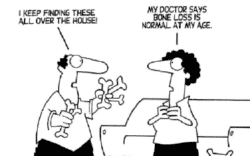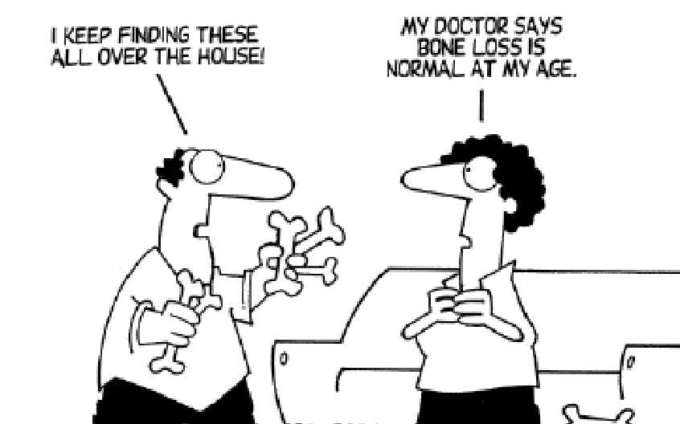BONE LOSS IN WOMEN AND HOW TO PREVENT IT, Michael Silverstein, MD (Digital)

Imagine your bones as a series of bricks; by age 25, in the majority of women, all the bricks have been set in place. Over time, however, these bricks can begin to wear away. Bone loss is something that almost every woman experiences, but to a different degree. If bone loss becomes significant, it can have a largely negative impact on your overall health. It’s never too early to begin working against bone loss, so here are some things to know about it and what you can do to make sure you have a long and healthy life.
What causes bone loss?
There are many different factors that can cause bone loss in women. In most cases, it’s the result of a normal loss of estrogen as you begin to age and reach menopause. Until menopause, the body’s estrogen supports the cells that help build bones (osteoblasts) and inhibits the cells that break down bones (osteoclasts). After menopause, many women experience a drop in estrogen, causing the body to begin to break down its bones, some faster than others.
Additionally, women who have taken steroids, have a family history of bone loss, are excessively lean, are sedentary, use certain types of birth control, or have poor calcium intake may not accrue the proper number of bricks or might experience wear more quickly. If unchecked, bone loss can result in osteoporosis, which puts you at risk of injury and fracture with even everyday stresses on your bones.
How can I prevent bone loss?
Bone loss is not reversible, but it can be halted. Because there are many different factors that can affect your bone density, it’s important to discuss your options with your gynecologist since it may require addressing other health issues. For most women, though, an active lifestyle that includes weight-bearing exercise and calcium supplementation of 1500 mg a day may be sufficient to maintain your strength. In most cases, starting these preventative measures early can be a huge benefit later in life!
How can my gynecologist help?
If your skeleton is represented by a brick wall, plucking out every 8th or 10th brick shouldn’t impact the strength of the wall. Perhaps every 3rd or 4th might make it more susceptible to injury. Thus, a higher rate of bone loss not only increases your susceptibility to injury, but could allow spontaneous collapse where the pressure is the greatest, such as the spine. The asymptomatic collapse of the vertebrae results in a loss of stature (height) and an alteration in posture.
Screening the back and hip with DEXA (Dual Energy X-ray Absorbiometry) can assess that status of your bones well before a dangerous amount of bone loss has occurred. There are several medications that have been demonstrated to successfully arrest bone loss. We recommend DEXA in patients at greater risk of bone loss as well as all women within 3 years of menopause. Your gynecologist can discuss how this technology can help during an appointment.

Schedule an Appointment
Bone loss can be a serious concern that is never addressed too early. Our gynecologists can help you get the best out of your body in the years to come during an appointment at our New York City office. To schedule an appointment, we invite you to call or fill out our online form.
Maternal Fetal Medicine blogs are intended for educational purposes only and do not replace certified professional care. Medical conditions vary and change frequently. Please ask your doctor any questions you may have regarding your condition to receive a proper diagnosis or risk analysis. Thank you!







